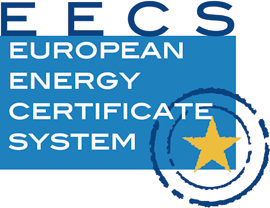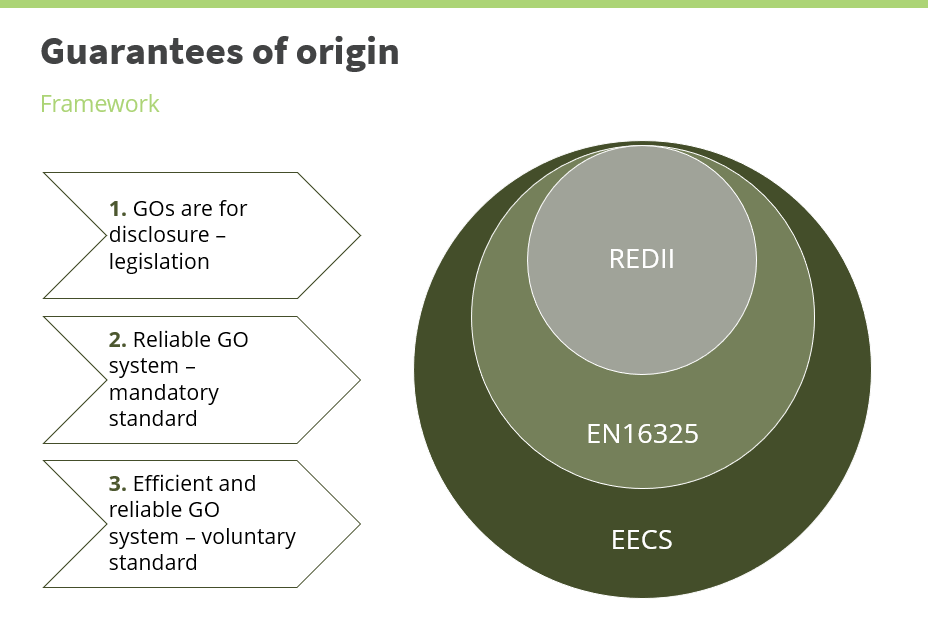EECS
Each EECS® certificate is uniquely identifiable, transferable and therefore tradable, and contains standard information on the source of the energy, and its method of production.
The Principles and Rules of Operation of the European Energy Certificate System (the EECS® Rules) defines a certificate as an electronic document which identifies the source and method of production of a unit of energy, and relates to a specific purpose – such as energy source disclosure or compliance with an obligation. It also prohibits certificate holders from separately claiming or conferring rights or title to any element of this benefit, and for this purpose.

Certificates are created, change owners and are eventually made untransferable under a carefully developed and managed control infrastructure, the EECS® Rules, as interpreted by each country or region according to its "Domain Protocol". The adequacy of this interpretation is assured by the other AIB members as a condition of membership.
EECS and the CEN standard EN16325
The EECS Rules provided the foundation of the proposed CEN standard. This version is the latest available, and is currently being revised prior to decision-making by CEN member organisations. The relationship between the EECS framework and CEN standard is best portraied as follows:

The framework for Guarantees of Origin (GO) is set by the Renewable Energy directive 2018/2001(EU). The Directive establishes the main design aspects of the GO system: its purpose, the mandate to member states to arrange the issuance of GOs for electricity, gas (including hydrogen) and heating and cooling, and their cross-border transferability. To ensure a reliable set-up, which is essential for trusting imports, the CEN EN16325 standard harmonises principles and essential aspects of the building blocks of this GO system.
In order to make the cross-border transfers efficient when volumes become big, and also to ensure reliable transfers, further details need to be harmonised. The European Energy Certificate System (EECS®) operated by AIB facilitates harmonisation of the details while being adaptable to changing circumstances, in agreement between issuing bodies.
The EN16325 standard for GOs, developed in 2013, has been based on the EECS Rules. Its ongoing revision builds upon the updated EECS Rules, for the principles of certificate administration and scheme-specific rules for different energy carriers. While the EECS Rules will require an update after finalising the EN16215 revision, embedding the full size of EECS in a CEN standard is not advisable. Indeed, time has proven that continuous developments are needed and that details are subject to dynamic change. AIB has a democratic decision making structure for continuous quality management of services and for the various levels of documentation of EECS, as shown in the graph below. This way, AIB facilitates both efficient and reliable handling of GOs in line with their purpose as set by legislation.
In addition, EECS facilitates a broader scale of energy certification than just Guarantees of Origin. This enables the development of solutions for upcoming needs in a harmonised way, while in constant dialogue with Issuing Bodies from all over Europe.
